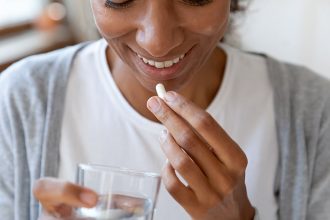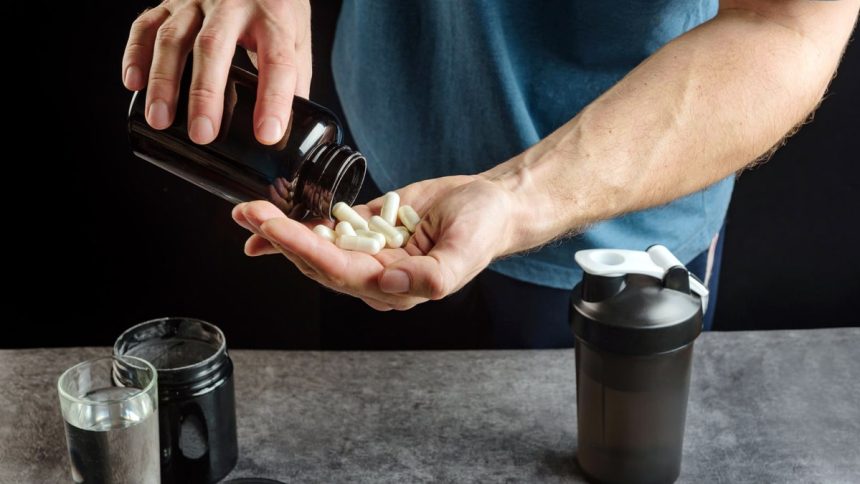The decision between creatine pills and powder largely boils down to personal preference.
If you find no issue with swallowing a pill, this method ensures a consistent creatine intake each time. Creatine pills typically contain anywhere from 0.7 grams to 2.5 grams of creatine per capsule, depending on the manufacturer.
On the other hand, if you enjoy mixing powders into your morning coffee, pre-workout smoothie, or plain water, creatine powder might be your preferred choice. However, dosing differs in this option, as one tablespoon of creatine powder equals about 5 grams—slightly higher than the pills.
Apart from dosage, digestion time may vary slightly between the two forms of creatine. Digesting a pill may take longer than the powder itself or the powder mixed with other ingredients.
Convenience may also play a role in your decision. You might favor the simplicity of swallowing a pre-measured pill over the potential mess of measuring and mixing powdered creatine.
How to Take Creatine
When embarking on a creatine regimen, many individuals opt for loading with larger doses in the initial days. For instance, according to Mount Sinai, one might consume 5 grams four times a day for up to five days before settling into a maintenance dose of 2 grams per day.
To enhance creatine absorption, pairing it with a carbohydrate source, such as fruit or fruit juice, is recommended by Mount Sinai. Powdered creatine can be easily incorporated into a cup of juice or blended into a fruit smoothie. Alternatively, creatine capsules can be taken with a cup of juice instead of water.
For improved muscle retention of creatine, the National Academy of Sports Medicine suggests adding powdered creatine to a shake or taking a pill with a snack or meal.
To optimize results and prevent dehydration, ensure you maintain adequate water intake while consuming creatine. Monitoring urine color for a light yellow hue indicates proper hydration.
While creatine is generally considered safe for up to five years in some studies, it is crucial not to exceed the recommended dosage. High doses may impact kidney, liver, or heart health, as noted by the NLM. Due to limited research on creatine use during pregnancy, it is advisable to err on the side of caution and avoid supplementation when expecting or breastfeeding, according to the NLM.
Whether you decide to take creatine in powder versus pill form is largely up to your personal preferences, as long as you’re taking an appropriate dose.
Common Questions
How long does it take for creatine pills to kick in?
The time it takes for creatine pills to take effect can vary among individuals. Some may experience noticeable changes in a few days, while for others, it may take a couple of weeks. Consistent and proper dosing is crucial for optimal results.
What happens when you stop taking creatine?
When you stop taking creatine, the elevated creatine levels in your muscles will gradually decline. This may result in a decrease in the enhanced performance and muscle strength associated with creatine supplementation. It’s important to note that any gains achieved during creatine use are not necessarily lost immediately after discontinuation, but they may diminish over time without ongoing supplementation. Regular exercise and maintaining a healthy lifestyle can contribute to sustained benefits.










